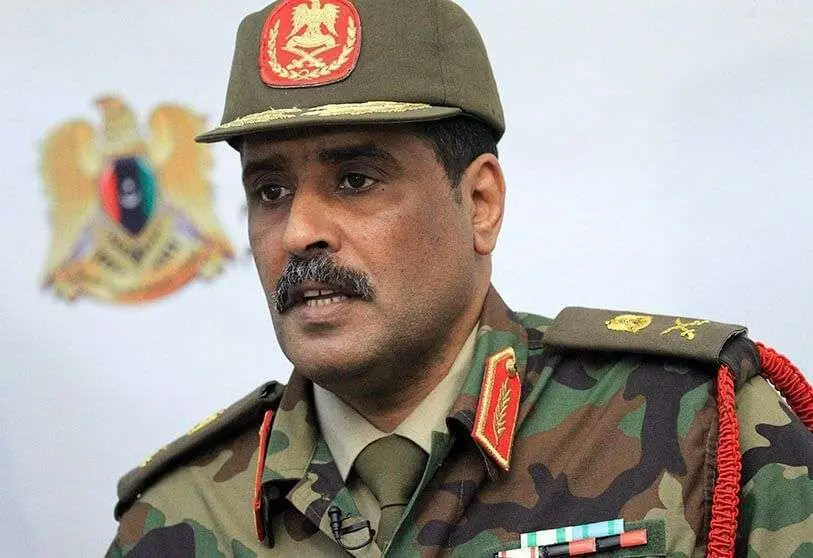The ceasefire in Libya between Tripoli and the rival parliament is complicated by the lack of internal agreements

On Friday, the leader of the Government of National Accord (GNA), Fayez Sarraj, announced an immediate ceasefire and an end to all hostilities with the authorities controlling the east of the country and the holding of elections in March. He also called for the demilitarisation of Sirte and Jurfa, the centres of international efforts to break the deadlock in the Libyan conflict. This announcement of a cessation of violence was enthusiastically received by the United Nations, the United States, Egypt, Greece, Algeria, the United Kingdom, Italy, Jordan, Germany and the Arab League, among others.
The European Union, through its High Representative for Foreign Affairs and Security Policy, Josep Borrell, expressed support for the ceasefire agreement. In a statement issued on behalf of the EU, Borrell described the agreement as a "constructive step" and praised Libyan leaders for their determination to overcome the current stalemate. "We fully support the agreement on the principles for the immediate cessation of all military activities in Libya, requiring the departure of all foreign fighters and mercenaries present in Libya, and the resumption of the negotiation process within the framework of the UN-led Berlin process," said the EU's top diplomat.

UN Secretary General António Guterres welcomed the call for a cessation of hostilities and hoped that "they would be immediately respected by the armed forces on both sides," said UN spokesman Stephane Dujarric. The development of this ceasefire could mark a before and after in the Libyan war in view of the growing fear of a new escalation with the increased mobilisation of the armed forces in Sirte, the gateway to oil exports.
This truce was also agreed by an ally of General Khalifa Haftar, who controls much of eastern and southern Libya. Aguila Saleh, president of the eastern-based parliament, which supports Haftar, announced a ceasefire. In a statement, Saleh called on all parties to "an immediate ceasefire in view of the economic conditions in the country and the spread of COVID-19". "The ceasefire will allow the departure of the mercenaries and the dismantling of the militias," added the Speaker of the House of Representatives.

However, according to Al-Jazeera, some factions supporting Haftar have denied such support for the cessation of hostilities. The spokesman for the Libyan National Army (LNA), Ahmed al-Mesmari, said at a press conference on Sunday that Haftar was not taking the ceasefire into consideration, seeing it as a "marketing" trick. The justification for this decision, according to al-Mesmari, is that the ANG forces were mobilising around the front lines in the centre of the country. "There is a military build-up and transfer of equipment to target our forces in Sirte," said the LNA spokesman.
Al-Mesmari pointed out that the LNA forces are in a fighting position to defeat the terrorism that "is expanding in Libya under international patronage". Meanwhile, on Saturday, Libya's High State Council, an advisory body to the ANG, rejected any dialogue with Haftar. In a statement, it stressed the need to work seriously to put an end to the "state of insurgency" in the country, through an immediate ceasefire and the need to allow the government to take control of all Libyan territory.
The statements welcoming this momentary cessation of hostilities received at the international level have not been such at the domestic level. Within Haftar's ranks there seems to be no consensus on whether or not to endorse the ceasefire declared by Sarraj. Abdullah al-Rifadi, leader of the National Front party, associated with the National Front for the Salvation of Libya, considered that Sarraj's statement was not consulted by the Supreme State Council, or even the Presidential Council and the government.

These positions have increased the fears that the initiative of a cease-fire and the holding of elections in March will be shattered and lead to a return to the battlefield. Both sides in the Libyan civil war have international support: the United Nations, the United States, Turkey, Italy and Qatar are among those who side with the ANG in Tripoli, while Russia, Egypt and the United Arab Emirates support General Haftar.
Since the overthrow and assassination of former ruler Muammar al-Qadhafi in 2011, Libya has been divided into rival political and armed groups. The oil-rich country remains deeply divided and both sides have accused each other of violating the truces and arms embargoes announced by the United Nations. In June the ANG forces regained total control of Tripoli, thanks mainly to the military cooperation agreement the Sarraj government signed with the Turkish president Recep Tayyip Erdogan. This ceasefire comes amid a continuous blockade of oil exports, the country's main source of income.








